- Home
- James Rollins
The Judas Strain sf-4 Page 9
The Judas Strain sf-4 Read online
Page 9
The man fell to one arm, screaming.
He was overrun, crabs scrabbling across his writhing body. But his wails continued, buried under the mass. For a moment, he surged back up. His mask had been stripped away, along with his nose, lips, and ears. His eyes were bloody ruins. He screamed one last time and fell back under the tide.
The other pirates fled in horrified panic, back to the tunnel, vanishing away. One man was cut off from the tunnel, pinned out on a spur of rock jutting off from the sea cliff. The crabs swelled toward him.
With a final cry he turned and leaped off the cliff.
More screams echoed up from the tunnel.
Like water down a drain, the sea of crabs swirled into the mouth of the tunnel, spiraling away in a red tide of razored claws.
Monk found Graff panting heavily beside him, eyes unblinking.
He reached and touched the man. He flinched.
“We have to go. Before the crabs decide to return to their forest.”
Graff allowed himself to be led down to the forest floor. There were still hundreds of crabs down here; they moved cautiously through them.
Monk broke off a feathery branch of the chestnut tree and swept away any of the crabs that got too near.
Slowly Graff seemed to return to himself, to settle back into his own skin. “I…I want one of those crabs.”
“We’ll have a crabfeed when we get back to the ship.”
“No. For study. Somehow they survived the toxic cloud. It could be important.” The researcher’s voice steadied, in his element.
“Okay,” Monk said. “Considering we left all our samples behind, we shouldn’t return to the ship empty-handed.”
He reached down and snagged up one of the smaller crabs with his prosthetic hand, grabbing it by the back of its shell. The feisty fellow snapped its claws backward at him, straining to get him.
“Hey, no marring the merchandise, buddy. New fingers come out of my paycheck.”
Monk went to smash it against a tree trunk, but Graff waved his good arm. “No! We need it alive. Like I said before, there’s something odd about their behavior. That bears examination, too.”
Monk’s jaw tightened in irritation. “Fine, but if this bit of sushi takes a chunk out of me, you’re paying for it.”
They continued through the plateau forest, wending across the island.
After forty minutes of trekking, the forest thinned and a panoramic cliff-top view opened. The island’s main township — named simply The Settlement — spread out along the beach and port. Out in the surrounding sea, beyond Flying Fish Cove, the white castle that was the Mistress of the Seas floated, a cloud in a midnight-blue sky.
Home, sweet home.
Movement drew Monk’s eyes to a group of smaller boats, a dozen, rounding Rocky Point, each leaving a contrail of white wake. The group traveled in a wide V, like an attack wing of fighter jets.
A matching group appeared on the other side of the township’s port.
Even from here Monk recognized the shape and color of the crafts.
Blue speedboats, long in keel and shallow draft.
“More pirates…” Graff moaned.
Monk stared between the two converging groups, two pincers, even more deadly than any red crab. He gaped at what was trapped between them.
The Mistress of the Seas.
1:05 P.M.
Lisa stared at the radiograph X-ray.
The portable light box was set up on a desk in the cabin. Behind her, a figure lay sprawled on the bed, a sheet fully covering the patient.
Dead.
“It looks like tuberculosis,” she said. The radiographs of the man’s lungs were frothy with large white masses or tubercles. “Or maybe lung cancer.”
Dr. Henrick Barnhardt, the Dutch toxicologist, stood at her side, leaning a fist on the table. He had called her down here.
“Ja, but the patient’s wife said he’d shown no signs of respiratory distress prior to eighteen hours ago. No coughing, no expectorating, and he does not smoke. And he was only twenty-four years old.”
Lisa straightened. They were in the cabin alone. “And you’ve cultured his lungs?”
“I used a needle to aspirate some of the fluid from one of the lung masses. The content was definitely purulent. Cheesy with bacteria. Definitely a lung abscess, not cancer.”
She studied Barnhardt’s bearded face. He stood with a bit of a hunch as if his bearish size somehow embarrassed him, but it also gave him a conspiratorial posture. He had not invited Dr. Lindholm into these discussions.
“Such findings are consistent with tuberculosis,” she said.
TB was caused by a bacterium, Mycobacterium tuberculosis, a highly contagious germ. And while the clinical history here was definitely unusual, TB could be dormant for years, slow-growing. The man could have been exposed years ago, been a ticking time bomb — then his exposure to the toxic gas could have stressed his lungs enough to cause the disease to spread. The patient would have definitely been contagious at the end.
And neither she nor Dr. Barnhardt wore contamination suits.
Why hadn’t he warned her?
“It wasn’t tuberculosis,” he answered. “Dr. Miller, our team’s infectious disease expert, identified the organism as Serratia marcescens, a strain nonpathogenic bacteria.”
Lisa remembered her discussion earlier, regarding the patient with normal skin bacteria that was churning out flesh-eating poisons.
The toxicologist confirmed the comparison. “Again we have a benign non-opportunist bacterium turning virulent.”
“But, Dr. Barnhardt, what you’re suggesting…”
“Call me Henri. And I’m not just suggesting this. I’ve spent the past hours searching for similar cases. I found two others. A woman with raging dysentery, literally sloughing out her intestinal lining. Caused by Lactobacillus acidophilus, a yogurt bacterium that is normally a healthy intestinal organism. Then there is a child demonstrating violent seizures, whose spinal tap is churning with Acetobacter aceti, a benign organism found in vinegar. It’s literally pickling her brain.”
As she listened, Lisa found her vision narrowing, focusing on the implication.
“And these can’t be the only cases,” Henri said.
She shook her head — not disagreeing, only in the growing, terrifying certainty of the truth of his words. “So something is definitely turning these benign bacteria against us.”
“Turning friend into foe. And if this turns into an all-out war, we are vastly outnumbered.”
She glanced up to him.
“The human body is composed of a hundred trillion cells, yet only ten trillion are ours. The other ninety percent are bacteria and a few other opportunistic organisms. We live cooperatively with this foreign environment. But if this balance should tip, should turn against us…?”
“We need to stop it.”
“It’s why I called you down here. To convince you. If we’re going to move forward, Dr. Miller and I need access to your partner’s forensic suite. We must begin answering critical questions. Was this a toxic or chemical alteration to these bacteria? If so, how do we treat it? And what if it’s contagious? How do we isolate or quarantine against it?” He grimaced through his beard. “We need answers. Now.”
Lisa checked her watch. Monk was already an hour late. Either he’s lost in his work or appreciating the island’s beauty and beaches. But now was not the time for sightseeing.
She nodded to Henri. “I’ll have someone radio Dr. Kokkalis. Get him back here ASAP. But in the meantime, you’re right. Let’s get started.”
She led the way out of the cabin. Monk’s forensic suite was near the top of the ship, five decks up. Sigma had commissioned one of the largest cabins to accommodate his equipment. Some of the crew had even unbolted beds and furniture to open space for the makeshift lab. The suite also had a wide balcony overlooking the starboard side. Lisa wished she was there now, needing sunlight, a fresh breeze on her face, something to c
hase away the mounting fear.
As she headed toward the ship’s elevator, she knew she’d have to call Painter yet again. She could not bear this responsibility on her own. She needed the full support of Sigma’s R&D team.
Plus she wanted to hear his voice again.
She pressed the button to call the elevator.
As if the button were attached to a detonator, a loud boom echoed from the other side of the ship, from the direction of the ship’s docking bay, where the tender boats ferried folks between the shore and the ship.
Had there been an accident?
“What was that?” Henri asked.
A second louder explosion rattled on their side of the ship, somewhere near the bow. Screams distantly echoed. Then Lisa heard a familiar sound, the strafing ping of automatic fire.
“We’re under attack,” she said.
1:45 P.M.
Monk bounced the rusted Land Rover down the steep slope. He had hot-wired the old truck from a parking lot near the island’s phosphate mine, abandoned during the evacuation. They sped along a dirt track that led down the back side of the mine toward the coastal township.
Dr. Richard Graff was belted into the seat next to him, one arm raised to the roof to help hold him in place. “Slow down.”
Monk ignored him. He needed to reach the coast.
The two had broken into one of the mine’s workshops and tried the phone.
No service. The island was all but empty at this point. They were at least able to find a first-aid kit in the shack. Graff ’s shoulder was slathered in antibiotic salve and wrapped up in gauze.
The researcher had managed his own care while Monk had hot-wired the truck. Graff still had the first-aid kit clutched to his belly with his wounded arm. Once emptied, it served as a nice cage for their crab specimen.
A curve of jungle road forced Monk to downshift. He flew around the bend, carting the truck up on two wheels by a couple inches. They slammed back down, jostled in their restraints.
Graff gasped. “You’re not going to do anyone any good if you bury our front end into the jungle.”
Monk slowed — not because of Graff ’s words of caution, but because the road ended at a paved crossroads. They had reached a remote section of the island’s coastal highway, a narrow two-lane blacktop. The dirt track dropped just to the south of Flying Fish Cove. To the north, the bulk of the township rose, a mix of seaside hotels, Chinese restaurants, dilapidated bars, and tourist traps.
But Monk’s attention remained focused out into the waters, beyond Flying Fish Cove. The Mistress of the Seas was surrounded by burning ships, blasted yachts, and the ruins of the Australian Coast Guard cutter. Smoke choked high into the midday sky. Like circling sharks, a score of blue speedboats sped and roared through the water.
A single yellow-and-red helicopter, a Eurocopter Astar, circled the cove, an angry hornet stirring up the smoke. From the flashes of muzzle fire out its open hatch, it was no friend.
Monk had caught glimpses of the sea assault as he swept down the switchbacks from the highlands: explosions, flashes of gunfire, shattering eruptions of flaming debris. The blasts had echoed up to their truck like the sound of distant fireworks.
Boom…boom…boom…
Off to the north, a resounding blast cast up a gout of smoke and flame, coming from the township. Close enough to rattle the Land Rover’s windows.
“Telstra substation,” Graff said. “They’re cutting off all means of communication.”
Other sections of The Settlement were already burning.
These were no ordinary pirates. It was a full-on assault.
Who the hell were they?
Monk shifted back into gear and headed away from the township, along the coastal road.
“Where are you—?” Graff began to ask.
Monk rounded a bend. A small beachside hotel, isolated within a couple of tamed acres of rain forest, appeared ahead. Monk took a sharp turn at a sign that read THE MANGO LODGE AND GRILLE. He sped down the entry road. The hotel rose into view, a two-story building that dissolved into a few freestanding jungle bungalows. A swimming pool glistened.
The place appeared deserted.
“You’ll be safe here,” Monk said as he braked to a stop at the side of the hotel under the shielding bower of the lodge’s namesake, a mango tree.
Monk hopped out.
“Wait!” Graff struggled with his door, finally fighting it open. He all but fell out of the Land Rover. He chased Monk down.
Monk did not slow. He half trotted toward the beach. Like all seaside hotels, the Mango Lodge and Grille offered all the activities a beachcomber might want: snorkeling, kayaking, sailing. At the rear of the establishment, Monk spotted the hotel’s activities center, a small cinder-block outbuilding with a thatched roof. It was boarded-up because of the evacuation.
On the fly, Monk snatched up a pole used to clean the pool. In no time, he was prying boards free and smashing through the glass door.
Graff caught up with him.
Monk reached out and hauled the researcher inside, out of the sun. The helicopter roared past overhead, low, its rotor wash whipping palm fronds. Then it swept away, continuing its patrol of the shoreline.
“Keep out of sight!” Monk warned.
Graff nodded vigorously.
Monk stalked through the front of the activities center, packed with beach towels, sunglasses, suntan oils, and a host of souvenirs. The place smelled of coconut and damp feet. Monk circled the counter and proceeded through a doorway draped in rattling beads.
He found what he was looking for.
Scuba gear hung along the back wall.
Monk kicked off his boots.
On the beach side of the room, lined up before a roll-up door, rested a variety of crafts for fun in the sun. Monk bypassed the paddleboats, a pair of kayaks, and stopped before the lone Jet Ski watercraft. It rested on a wheeled trailer, ready for easy hauling to and from the water.
At least the seas on this side of the island were clean of that toxic soup.
Monk turned to Graff. “I’m going to need your help.”
Eighteen minutes later, Monk rubbed his elbow across the grease-stained window in the roll-up door. His wet suit squeaked against the glass. Craning his neck, Monk waited for the helicopter to circle by overhead and swing back north toward Flying Fish Cove. The cove lay out of direct sight, hidden by Smith Point. All that Monk could make out of the war zone was the smudged pall of smoke rising over the ridgeline.
At last, the helicopter turned tail and headed back toward the cruise ship.
“Okay, here we go!”
Monk bent down and hauled the door up, snapping it into place overhead. Behind him, Graff lifted the trailer hitch, and Monk swung around to the front. He grabbed the back of the Jet Ski, and together they ran the trailer down to the water. The large rubber sand tires made it quick work.
Graff loosened the craft from the trailer while Monk ran back and hauled on his BC vest and tanks. Once outfitted, he slipped a souvenir Mango Lodge windbreaker over all his equipment.
Heavily burdened, Monk plodded back to the water and helped float the Jet Ski off its trailer. “Stay hidden,” he instructed Graff. “But if you can find some means of communication, a radio or anything, try to raise someone in authority.”
Graff nodded. “Be careful.”
In another minute Monk was gunning the engine to a high whine and racing off toward Smith Point. Behind him, Graff trotted the empty trailer back to its garage.
Monk bent lower in the seat and cranked the craft to full throttle. Flying faster, the windbreaker snapped in the breeze. Sea and salt sprayed. Smith Point grew in front of him. At last, he reached the rocky spur and, without slowing, sped around it.
On the far side of the cove, the Mistress of the Seas rose like a besieged white castle. Closer still, the waters burned with spills of flaming oil and smoking husks of ships. Even the jetty was a blasted ruin. And throughout the war zone, the
roar of the pirates’ speedboats growled.
On the hunt.
Here we go.
Like a skimming torpedo, Monk shot into the fray.
2:08 P.M.
“There must be something we can do,” Lisa said.
“For now, we sit tight,” Henri Barnhardt warned.
They were holed up in one of the empty outside cabins. Lisa stood near one of the room’s two portholes. Henri took a post by the door.
An hour ago they had fled through the ship, only to discover the place in full chaos. Uniformed crew and wild-eyed passengers, both the sick and the healthy, crowded the hallways. Explosions and gunfire were almost drowned out by the nerve-rattling klaxon of the ship’s alarm bell. Whether automated or purposeful, someone had tripped the ship’s fire doors, dropping them, isolating sections.
Meanwhile masked gunmen cleared the halls, one after the other, shooting anyone who resisted or moved too slowly. Lisa and Henri had heard the screams, the gunfire, the trampling feet from the deck above. They came close to being shot themselves. Only a swift race through the ship’s gilded showroom and down another hallway had saved them.
They did not know how much longer they could hold out.
The rapidity of the takedown of the Mistress of the Seas suggested some of the crew must have been involved.
Lisa stared out the porthole window. The sea was on fire. From this same window, she had watched a handful of desperate passengers leap from upper balconies into the waters, hoping to make it to shore.
But the gunboats swept the cove, peppering and strafing the water.
Bodies floated amid the flaming debris.
There was no escape.
Why was this happening? What was going on?
Finally, the alarm klaxon went silent, cutting off with a final whining squelch. The silence that remained felt heavy, a physical weight. Even the air seemed thicker.
Somewhere above someone sobbed and wailed.
Henri met Lisa’s eyes.
From the room’s speaker a stiff voice began speaking in Malay. Lisa didn’t speak the Malaysian language. Still staring at Henri, she watched the toxicologist shake his head. He was just as lost. But whatever was said was eventually repeated in Mandarin Chinese. They were the two most common languages spoken on the island.

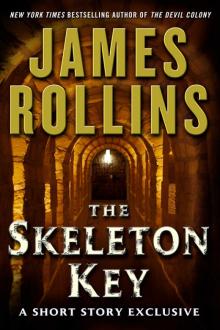 The Skeleton Key
The Skeleton Key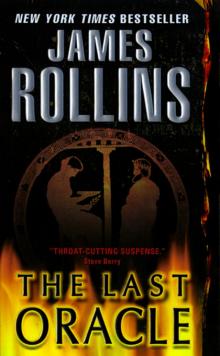 The Last Oracle
The Last Oracle The Judas Strain
The Judas Strain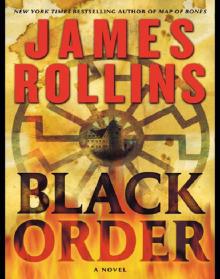 Black Order
Black Order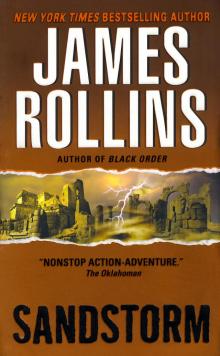 Sandstorm
Sandstorm Ghost Ship
Ghost Ship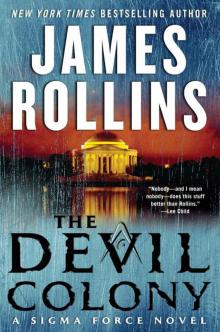 The Devil Colony
The Devil Colony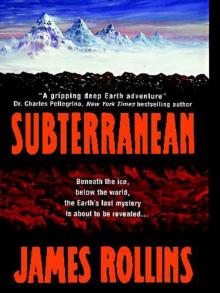 Subterranean
Subterranean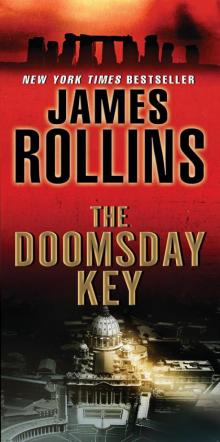 The Doomsday Key
The Doomsday Key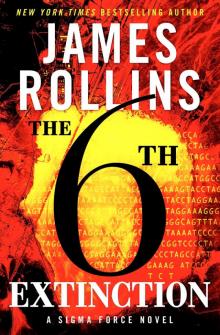 The 6th Extinction
The 6th Extinction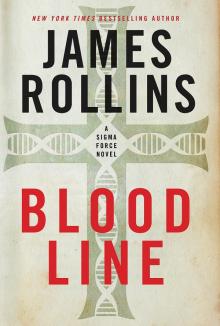 Bloodline
Bloodline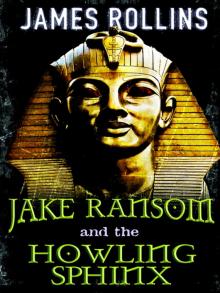 Jake Ransom and the Howling Sphinx
Jake Ransom and the Howling Sphinx The Midnight Watch
The Midnight Watch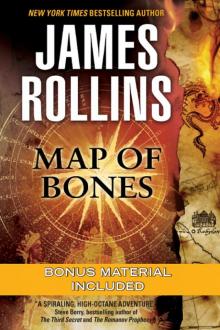 Map of Bones
Map of Bones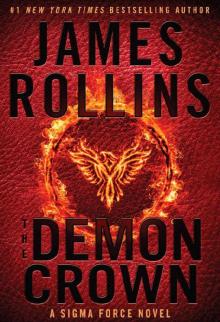 The Demon Crown
The Demon Crown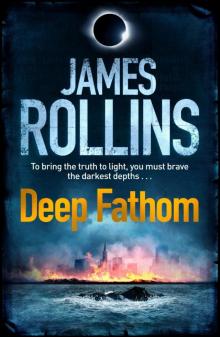 Deep Fathom
Deep Fathom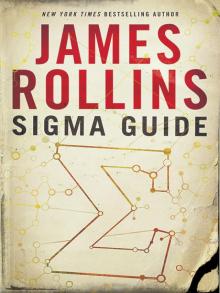 Sigma Guide
Sigma Guide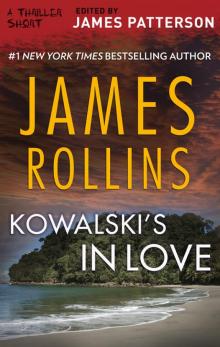 Kowalski's in Love
Kowalski's in Love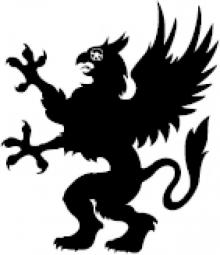 Jake Ransom and the Skull King's Shadow
Jake Ransom and the Skull King's Shadow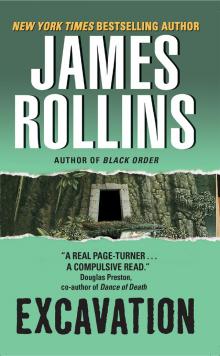 Excavation
Excavation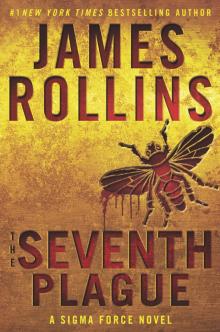 The Seventh Plague
The Seventh Plague Altar of Eden
Altar of Eden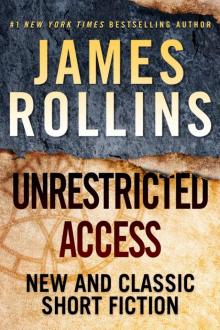 Unrestricted Access: New and Classic Short Fiction
Unrestricted Access: New and Classic Short Fiction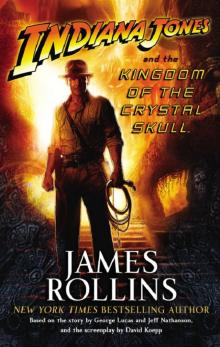 Indiana Jones and the Kingdom of the Crystal Skull
Indiana Jones and the Kingdom of the Crystal Skull Crucible
Crucible The Eye of God
The Eye of God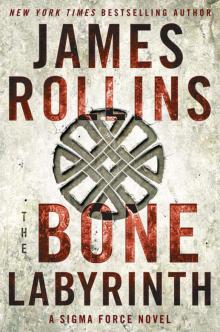 The Bone Labyrinth
The Bone Labyrinth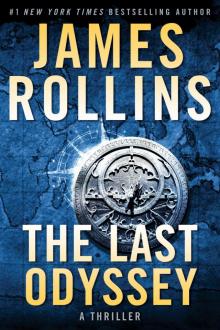 The Last Odyssey: A Thriller
The Last Odyssey: A Thriller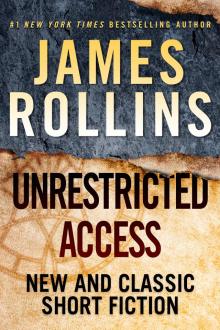 Unrestricted Access
Unrestricted Access Amazonia
Amazonia Blood Brothers: A Short Story Exclusive
Blood Brothers: A Short Story Exclusive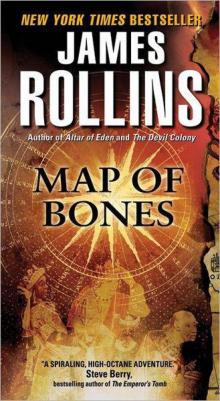 Map of Bones: A Sigma Force Novel
Map of Bones: A Sigma Force Novel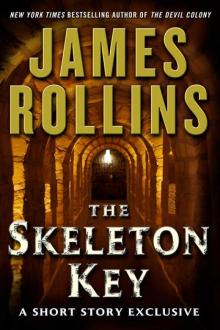 The Skeleton Key (sigma force)
The Skeleton Key (sigma force)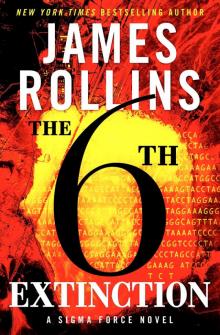 Sigma Force 10 - The Sixth Extinction
Sigma Force 10 - The Sixth Extinction Innocent Blood
Innocent Blood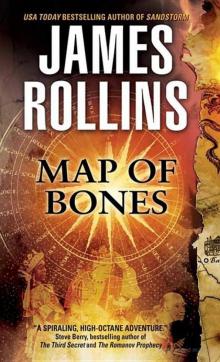 Map of Bones sf-2
Map of Bones sf-2 The Eye of God: A Sigma Force Novel
The Eye of God: A Sigma Force Novel The Eye of God: A Sigma Force Novel sf-9
The Eye of God: A Sigma Force Novel sf-9 The Pit
The Pit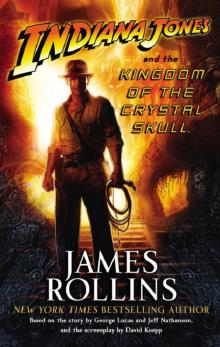 Indiana Jones and the The Kingdom Of The Crystal Skull
Indiana Jones and the The Kingdom Of The Crystal Skull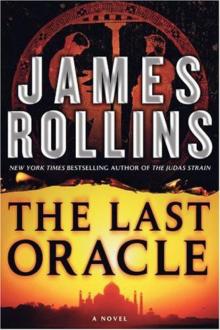 The Last Oracle (2008) sf-5
The Last Oracle (2008) sf-5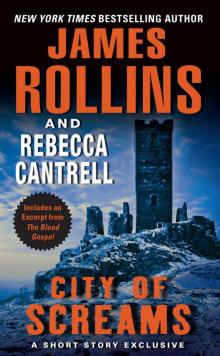 City of Screams
City of Screams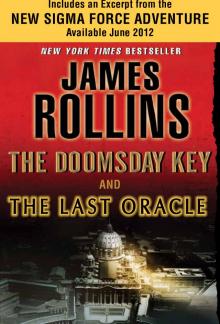 The Doomsday Key and The Last Oracle with Bonus Excerpts
The Doomsday Key and The Last Oracle with Bonus Excerpts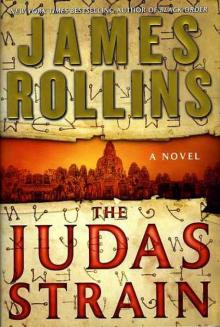 The Judas Strain sf-4
The Judas Strain sf-4 Blood Infernal
Blood Infernal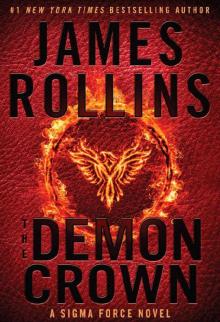 The Demon Crown: A Sigma Force Novel
The Demon Crown: A Sigma Force Novel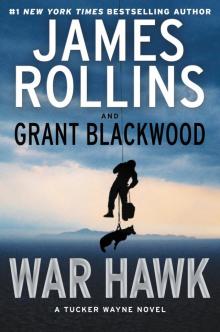 War Hawk: A Tucker Wayne Novel
War Hawk: A Tucker Wayne Novel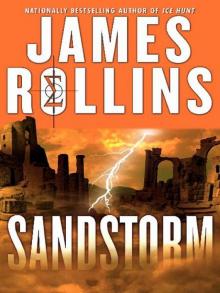 SANDSTORM sf-1
SANDSTORM sf-1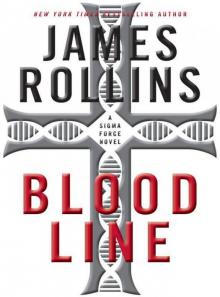 Bloodline: A Sigma Force Novel
Bloodline: A Sigma Force Novel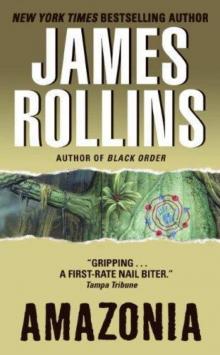 Amazonia: a novel
Amazonia: a novel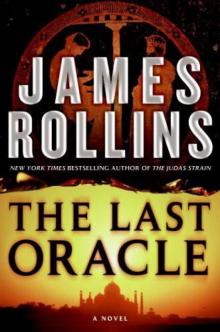 The Last Oracle: A Sigma Force Novel
The Last Oracle: A Sigma Force Novel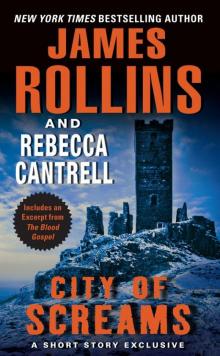 City of Screams (the order of the sanguines)
City of Screams (the order of the sanguines)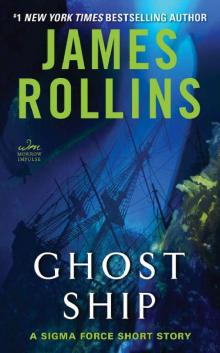 Ghost Ship: A Sigma Force Short Story
Ghost Ship: A Sigma Force Short Story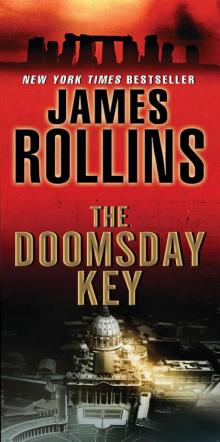 The Doomsday Key: A Sigma Force Novel
The Doomsday Key: A Sigma Force Novel